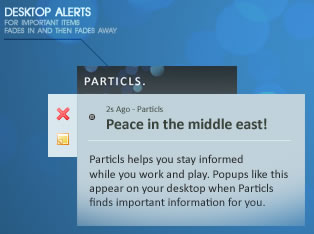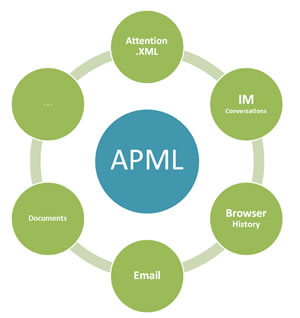 Information overload is a buzz phrase which has been getting a lot of use recently. It refers to the enormous amount of information which we now consume (largely because of the level of accessibility to content which the Internet gives us), and the challenges that that creates. Another important issue is the Long Tail, as recognised by Chris Anderson, and the way that relates to content. In other words, there is now far more information available which makes discoverability much harder.
Information overload is a buzz phrase which has been getting a lot of use recently. It refers to the enormous amount of information which we now consume (largely because of the level of accessibility to content which the Internet gives us), and the challenges that that creates. Another important issue is the Long Tail, as recognised by Chris Anderson, and the way that relates to content. In other words, there is now far more information available which makes discoverability much harder.
This is where attention data comes in. If a computer can work out what I’m interested in, and therefore whether I’m likely to be interested in a particular item, then it can help me to discover more great content and then make sure that I don’t suffer information overload. This is surely the holy grail of information consumption; to reduce the quantity but to improve the quality – to improve the signal to noise ratio.
There are some products which do a great job on the discovery side; Last.fm is a British service which will spy on what music you are listening to on your computer and then provide you with a personalised radio station based on how your tastes compare to others. Put simply if I like Westlife I’m likely to enjoy Boyzone, because other people who listen to Westlife also listen to Boyzone (I happen to despise both). StumbleUpon applies the same approach to websites, and is experiencing phenomenal success.
However, there’s one product which I have recently become a major fan of; Particls (formerly Touchstone). This is remarkable because it manages to solve both problems with a good degree of success. It is, at its heart, an RSS aggregator. You download it, and then import your OPML. The next step is to enter a few words which describe things that you’re interested in and want to hear news on. Then the magic happens.
Particls – My New Fave
 Particls will show a series of popups at the bottom of your screen when a new item which it feels is of high importance arrives, and for items of lower importance it will display them in a news ticker across the top of the screen (which it is possible to turn off). Within a few hours, Particls had worked out to a great degree of accuracy what I was interested in, and even managed to bring me breaking news (that Google was building a presentations tool) that was bang on what I’m interested in. It was also remarkably good at bringing up interesting items from blogs I was not subscribed to based upon those words I entered. So, it manages to deal with information overload and discoverability in one excellent product.
Particls will show a series of popups at the bottom of your screen when a new item which it feels is of high importance arrives, and for items of lower importance it will display them in a news ticker across the top of the screen (which it is possible to turn off). Within a few hours, Particls had worked out to a great degree of accuracy what I was interested in, and even managed to bring me breaking news (that Google was building a presentations tool) that was bang on what I’m interested in. It was also remarkably good at bringing up interesting items from blogs I was not subscribed to based upon those words I entered. So, it manages to deal with information overload and discoverability in one excellent product.
Attention in Advertising
The business prospects for such applications are great. There’s an advantage of taking attention data which I haven’t mentioned yet; advertising. Advertisers have a holy grail, too, and it’s called targeting. They want to show the right ads to the right people at the right time. Google AdWords are an excellent example of this – if I search for ‘cheap digital cameras’ it is quite likely I am looking to buy such a camera, and so advertisements for digital cameras are well targeted. If an advertiser knows what I am interested in, then inventory in products that I use becomes far more valuable. Joost, the IPTV startup has recognised this, and will allow advertisers to target their advertisements based on what TV shows a person likes. Of course, there are advantages in this approach for consumers as well; they dislike watching irrelevant ads even more than they do those which are relevant.
Privacy is an issue
This is all pretty exciting stuff. Particls is a bit rough round the edges at the moment (which is expected, since it is still in beta), but the basics are working extremely well. The only potential problem with all this is privacy – which is the topic of a whole post in itself – but movements like the APML workgroup (which aims to make all of this data portable) encourage me. This is definitely a trend to watch, and it is something that needed to happen to respond to challenges created by the media revolution.
Huw Leslie is editor of UK-based Web 2.0 and software blog GizBuzz. He is a co-founder of Oratos Media and Klaxis, and his personal blog is For Crying Out Loud.